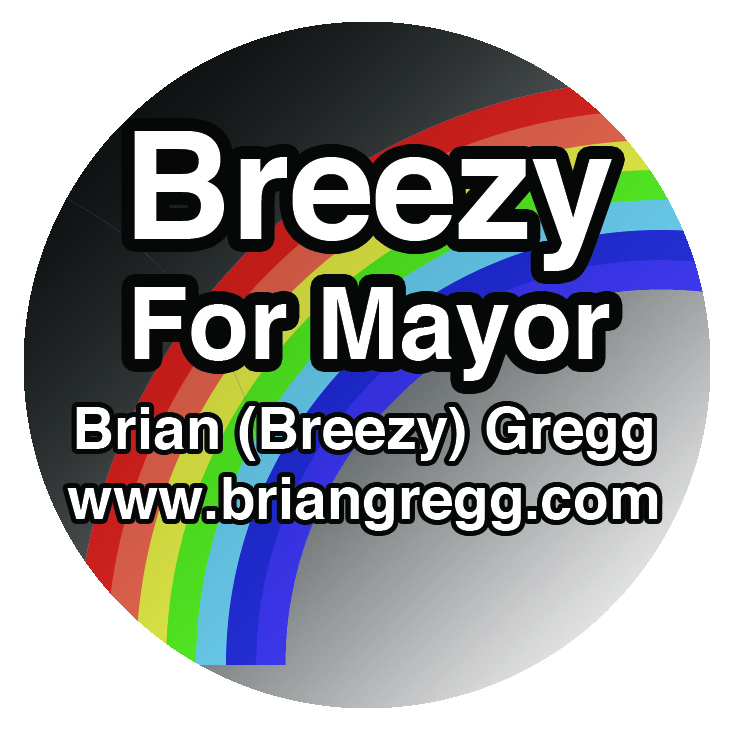
Happy Pride Month Everyone


May 15, 2021
I have been reaching out to everyone I know and talking with about 30 people a day. A few interested strangers, several printers, billboard firms, media advertising departments and disturbingly some seemingly very weird people have been reaching out to me. So far the upsetting things are far outweighed by the great insights people are giving me. There really is something to learn from everyone.
A lot of people sense there is something wrong with the way big money is being used to influence the way people vote. I really don’t like calling this quest a campaign. We are not fighting. We are speaking up. Just because everyone else, it seems, treats elections like a war does not mean that that is right.
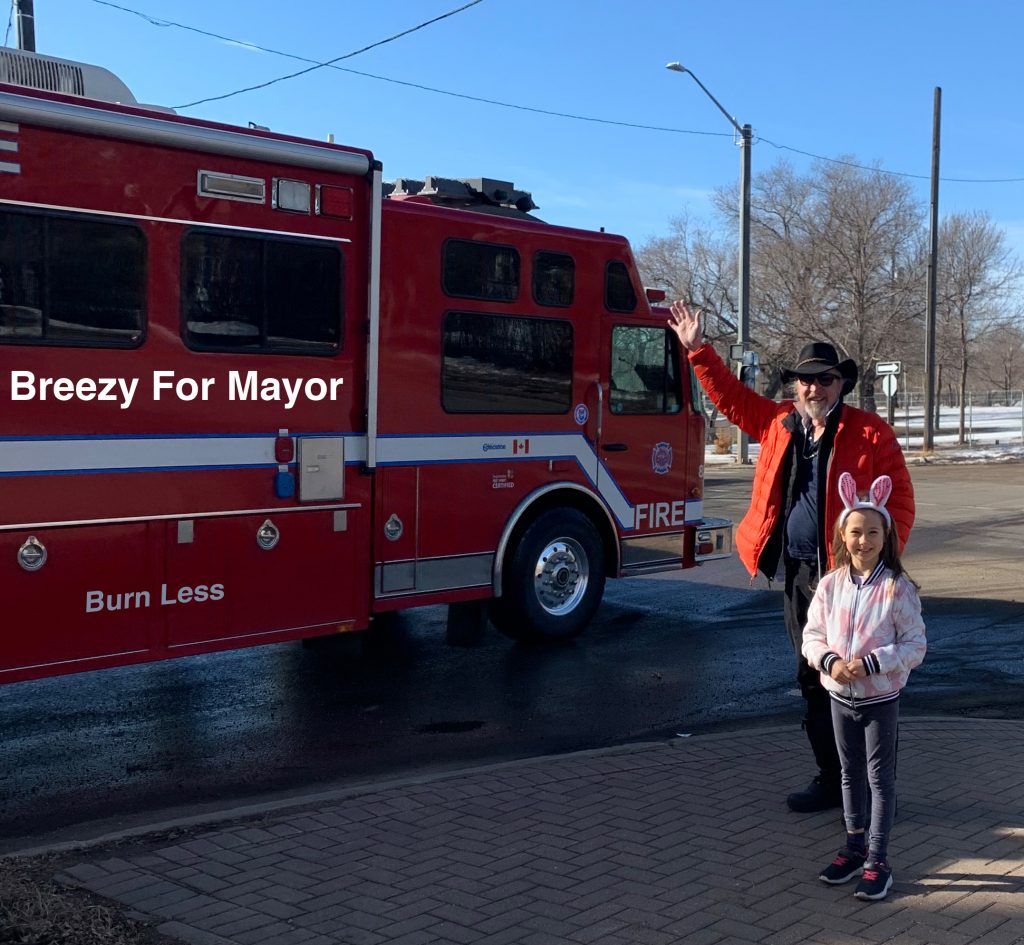
Our top goal is to demonstrate we do not need big money to win. The way big money influences elections has always been disgusting but now it is out of hand. There is not time to wait for some future government to bring in more tighter restrictions to try and make things fair. We can use our own self control to limit the anti-democratic power of money in our elections.
It’s not nice to disappoint people by turning down an offer of a gift but at the same time it is delightful fun to explain there is a super good reason for refusing to accept monetary donations intended to support my candidacy. That’s what happened twice yesterday. Two millionaires I happen to know, saw it mentioned on Global News that I am running for Mayor and phoned to offer donations. Thank you Global News.
I am looking forward to when Global reports on the important difference between our Quest and the other Campaigns. In some war campaigns they take no prisoners . In our quest we take no monetary donations.
Although it is only one part of my diverse work experience, most of you know I have spent thousands and thousands of hours busking on the street. I have seen and talked to a lot of different Edmontonians. On the street I talk to every kind of person including pan handlers. Buskers are different from pan handlers in that we never ask for money other than we have our guitar case open. Pan Handlers ask. They give you a story and ask.
Now not to try and belittle other candidates running for office, but they are very much like panhandlers. They give you a story and ask you for a donation. Sort of hard to imagine that when they are elected that they would not be governing to please those who funded them. And not hard to imagine that the concerns of those who cannot afford to donate become less important.
I want to feel equally responsible to govern for each and everyone.
All I am asking is for you to vote for me and to please tell your friends to check out our platform and notice how it differs from the stories being sold by the other candidates.
So once again lets make a point of talking about this with our friends and encourage them to talk to their friends.
To that end we are taking a survey to track where the message is spreading. Many of you have already taken this survey but if you want, take it again a few times in the next months please.
Survey Re: Breezy For Mayor
Only 4 questions, to respond, please click —
Survey Re: Breezy For Mayor
Let’s look at this as a big part of an emergency response to not only a pandemic but to an even more dire emergency the climate emergency.
Big money in politics stands in the way of making an appropriate emergency response. The response is simple and boils down to just two words — burn less. Big money through its advertising funded media keeps giving us a message that boils down to just two words — Buy More. Buy more means more burning. What could possible go wrong? We are constantly being pushed to buy more and therefore burn more.
Thank you again everyone. Next month lets talk about a voter incentive program again. What if every voter was handed $1,000 cash when they cast their ballot? In Australia they fine you if you don’t vote. Maybe $1,000 is too much. Some people say $5. A California study showed that a $50 incentive boosted turnout at the poles and a $100 incentive boosted it even more. Not only that the study showed that when people knew ahead of time that they were going to vote because there was a cash incentive, they took time to become engaged and familiarize themselves with the candidates they might choose to vote for. We can understand paying out CERB as a good social investment during a pandemic. It will be a good social investment to pay BUCKS FOR BALLOTS. Why shouldn’t we pay voters for doing the thing that is so fundamentally important for democracy.
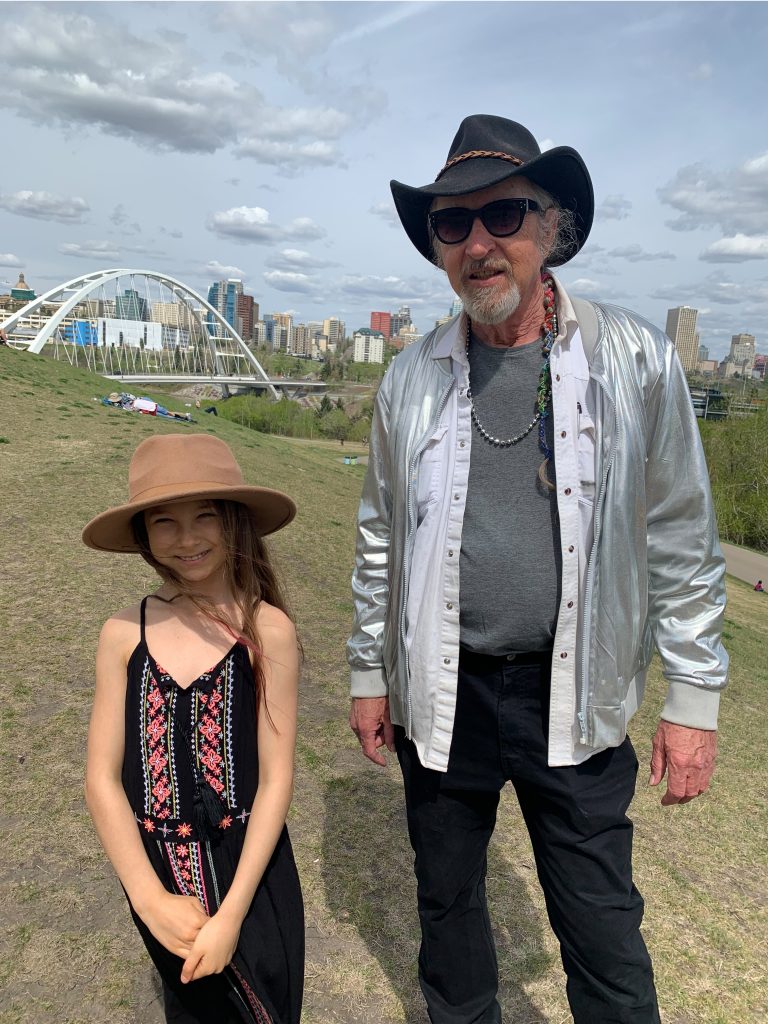
I want to promote a new public service: a communication service I call The Digital Public Library,
a place online where we can go and access all content
• any book,
• any movie,
• any song,
• any newscast,
• any sports event,
• any text book,
• any academic paper,
free of charge we will be able to access it
free of advertising
and not only that this public service will pay,
whoever has produced our content,
for our use of it.
So … vote for me. It will be good for you.
It will be good for you. Vote for me.
Vote Brian (Breezy) Gregg for Mayor October 18, 2021
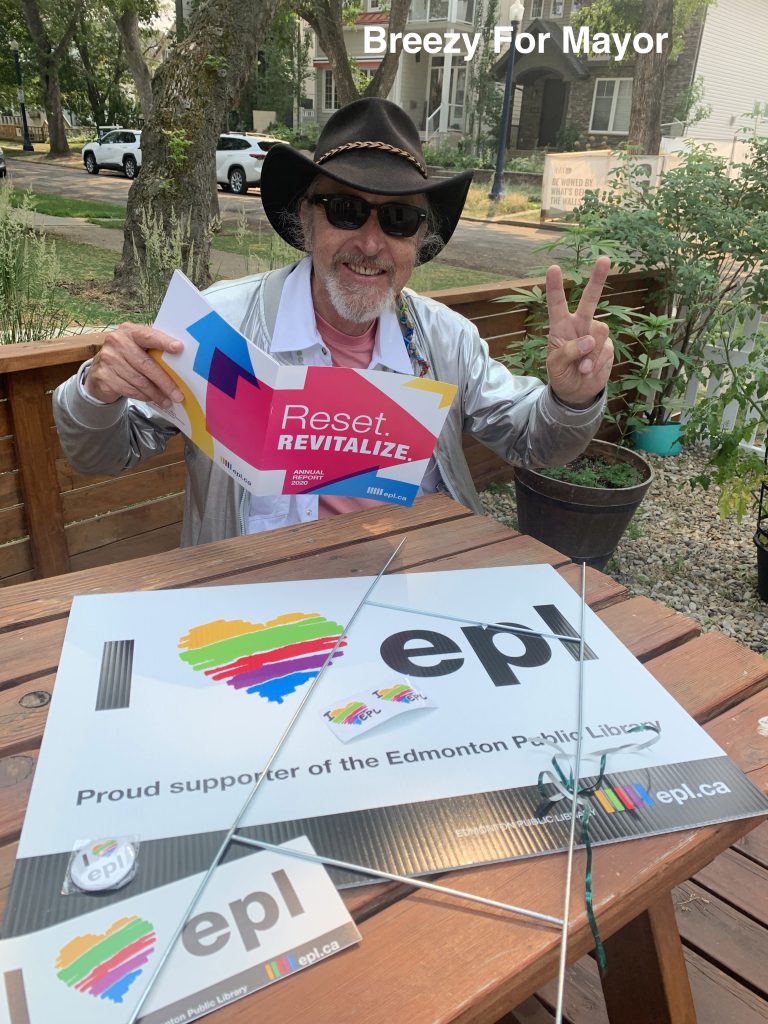
Platform 1.0
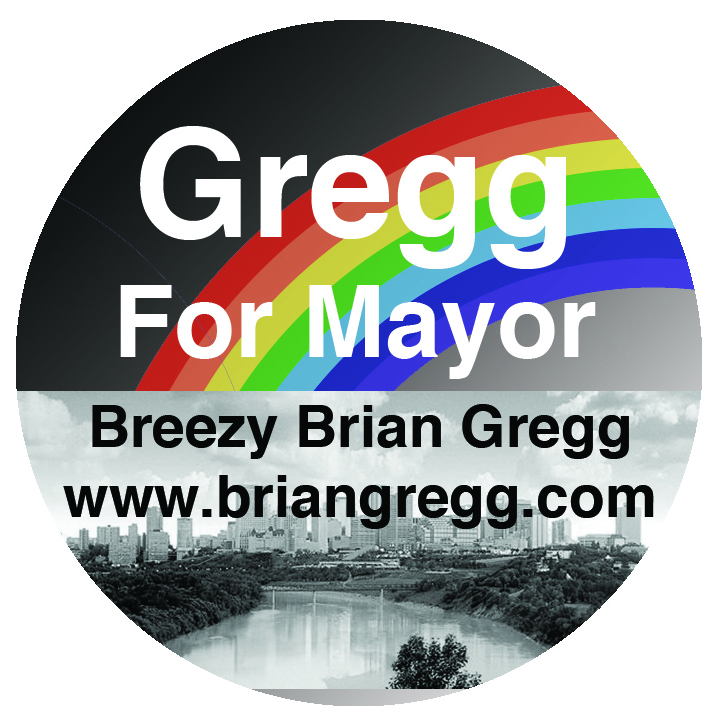
Punish the UCP. Vote Gregg for Mayor October 22, 2021
I want to share with you what I wrote to The Honourable Steven Guilbeault.
Dear Honourable Steven Guilbeault
Minister of Canadian Heritage
Thank you for your work for all of us. It is not easy to avoid getting ripped off these days. By failing to publicly fund access to media content we have allowed a massive private industry to evolve into a wild west system where predators and scammers thrive at others expense.
Despite the challenge we face now, I have hope. I have a dream for better way to access what we want from what is becoming an ever expanding library of digital media content.
In Canada … in the past we have created new public services that have proven to be fairer to everyone and more cost effective than the private services they replaced. The best example being our Canadian public healthcare system.
Presently I may be the only person speaking up to say we need a new public service that gives people universal access to digital media content of their own choosing and that automatically pays the producers and owners of the digital content for peoples use of media content.
It is my opinion that financing the production of media content with advertising or subscription fees weakens democracy. Not only that, there are good reasons to suspect that a publicly funded media access service would lower people’s cost of living by more than it would cost people to finance the service with general tax revenue.
The weakening of democracy comes from the fact that relying on advertising to finance media content access services creates a huge opportunity for wealthy people and their organizations to buy advertising which is buying the opportunity to influence people’s commercial and political choices. Should it not be clear that this is absolutely not democratic?
Attempting to solve this democratic deficit by regulating or prohibiting advertising has to be difficult if not impossible given that we have freedom of expression guarantees which I hope we would want to retain. That difficulty does not take away from the fact that it is wrong in a democracy that wealthy people and their organizations have the opportunity to push and amplify their preferred opinions and views.
My view which comes to you here absolutely un-amplified is that we can solve the democracy deficit simply by publicly financing a new service that gives people free access to their desired media content. I call this new public service The Digital Public Library.
a place online where we can go and access all content
free of charge we will be able to access it
free of advertising
and not only that this public service will pay
whoever has produced our content
for our use of it
Essentially the DPL does just two things
The status quo Commercial Media does three things
In 2017, the Canadian Institute for Health Information reported that healthcare spending was $242 billion, or 11.5 percent of Canada’s gross domestic product (GDP) for that year.
I estimate funding The Digital Public Library would cost 1.9% of GDP or $ 40 billion a year. (perhaps $ 6 billion for Alberta)
I claim this service will save people twice as much by reducing their cost of living as it will cost them in extra taxes to finance the public service.
Digital Public Library? To be clear I am talking about a nonprofit, publicly funded but independent media-content-access service to provide everyone with the access to media-content that is now being provided by, to name some majors; YouTube, Google, Facebook, Twitter, Instagram, WhatsApp and and many more. We need a service that lets us access all content (including text books and academic papers) without having to pay a fee and without requiring us to consent to being surveilled and exposed to predatory advertising pitches intended to manipulate and influence our political and commercial choices.
This service also needs to provide remuneration for the firms and individuals that produce media content and the remuneration should be democratic, based on people’s self-chosen use of media content. In the digital content realm, the remuneration can be automatic when transactions are triggered by real identifiable individuals’ use of media-content, and when the payments are made to real identifiable owners and producers of the media-content. Addressing the issue of privacy, it should be noted just as is done by Statistics Canada, general measurements can me made without tracking individuals’ identities.
I am not talking about a total socialization of media industries, just the access arm of the industry. I am fine with the production arm of the media industries remaining a mix of for profit and nonprofit organizations with part of their revenue streams coming from both public and private donations or grants, but mainly I see the production industries being sustained by use based royalties being paid by the public access service (The Digital Public Library).
The argument for making democracy stronger and fairer, by publicly funding a digital public library service, is probably most important for everyone to understand.
Why is it not recognized that within what we call “the media” there are two very different industries, the production industry and the access to content industry?
Why is assumed that the access to content industry can best serve the public if it is provided by private businesses that finance their access enterprise with advertising or subscriptions as opposed to having a publicly funded but independent media content access service?
I have several questions regarding the financing of media access services that seem to be being ignored or overlooked.
It is assumed the commercial system we are using is overall economically beneficial. There is no hard proof that it is. I have a hunch it is not at all of economic benefit to ordinary people.
Cost is of course important but even if my hunch is wrong that relying on a commercial system makes life more costly, what should we be willing to pay to have a strong and fair democracy?
Not only as a more economically efficient communications system but also as a system that strengthens democracy I am proposing that we should create a new public service through legislation. I call this public service —
The Digital Public Library Proposal
Thank you
Breezy Brian Gregg
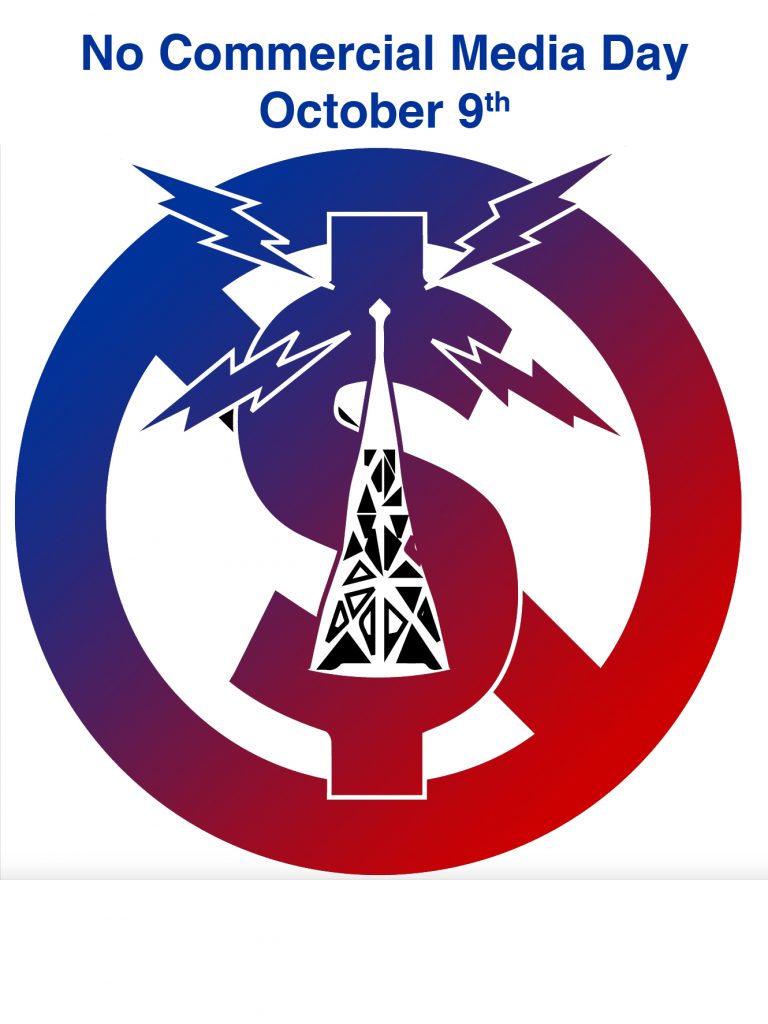
Had enough yet? Try turning it off for 24 hours.
I have been calling this a strike not a boycott because I think that when we are giving our attention to commercial communication channels* we are working for them. I am asking people to live their lives for one day without using commercial communications channels. I am also encouraging people to try striking for a day some time before Oct. 9 so they will know what challenges they may face while striking.
The purpose of the action is to promote the idea of creating an online not-for-profit communications channel. A communications channel that does not advertise to its audience or track people’s behaviour. This no push, no spy communications service I refer to as a Digital Public Library
*Commercial Media Channels are private firms like; Newspapers, Radio Stations, T.V. Networks, Google, Facebook, and YouTube.
Since the morning of April 16, 2019 I have been on strike against commercial media channels. I encourage everyone to join me. Commercial Media Channels are private firms like; Newspapers, Radio Stations, T.V. Networks, Google, Facebook, and YouTube. It is my understanding that by giving my attention to them I am enabling them and empowering them. They are nothing without an audience. I am happy to report that this has freed up a lot of time which I am now using to work on what I think is important. I think it is important to bring into being a public media channel which I refer to as a Digital Public Library.
Check out why I think the Green New Deal needs to add media reform to its agenda for progressive change. A proposed new public service to partially socialize the media is explained in the post at this link: About The Digital Public Library Proposal